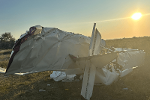Funds with investments on the Stock Exchange have been hit equally hard by recent months' corrections, irrespective of whether they invested in SIFs, banks, or expanded their portfolio on the RASDAQ market.
Equity funds could not protect themselves from aggressive corrections, as the dramatic slumps seen by the BSE and RASDAQ market have left them with no growth alternatives.
Companies listed on RASDAQ, which was previously a real gold mine for equity funds that dared to take on high risks, ceased to be growth drivers in terms of yield. Blue chips could not preserve equity funds' yields, either.
Moreover, the main indices ended the first four months with losses.
BET index dropped by around 20%, while BET-C, reflecting the trend of all listed companies, lost 14.4% during the same interval. On RASDAQ, the index that included all the listed companies, RASDAQ-C, dropped by over 25.4%.
In the first four months, the equity fund that boasted the biggest yield was Investica Altius, with minus 15.3%, while Raiffeisen Romania Actiuni fund stood at the opposite end, with a 35.8% decrease.
Whereas investments in oil, SIFs and banks brought KD Maximus the biggest annual yield last year, of 29.7%, in the first four months of 2008 the fund posted a 24.7% drop.
The fund that ranked second in 2007, Omninvest, posted a 24.8% performance in 2007, while for the first four months of 2008 its yield stood at minus 28.2%.
Another high performer in the industry, Active Dinamic, posted an annual yield of 23.3% in 2007, while in the first four months of this year it registered a decline of over 24%.
Amid stock market aggressive corrections, mutual fund managers followed two distinct investment directions: banking managers, who embraced a more cautious strategy, bet on the Bucharest Stock Exchange, while independent managers,







